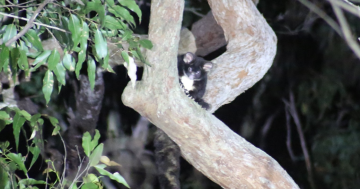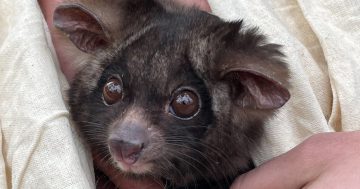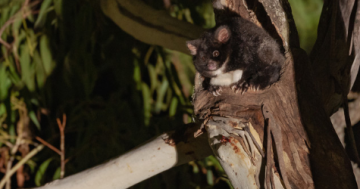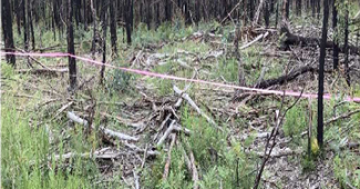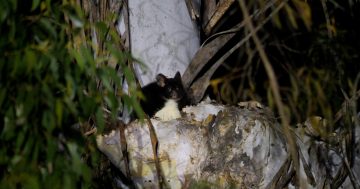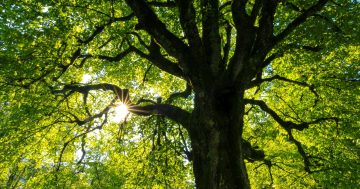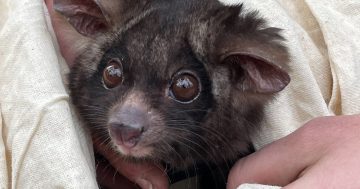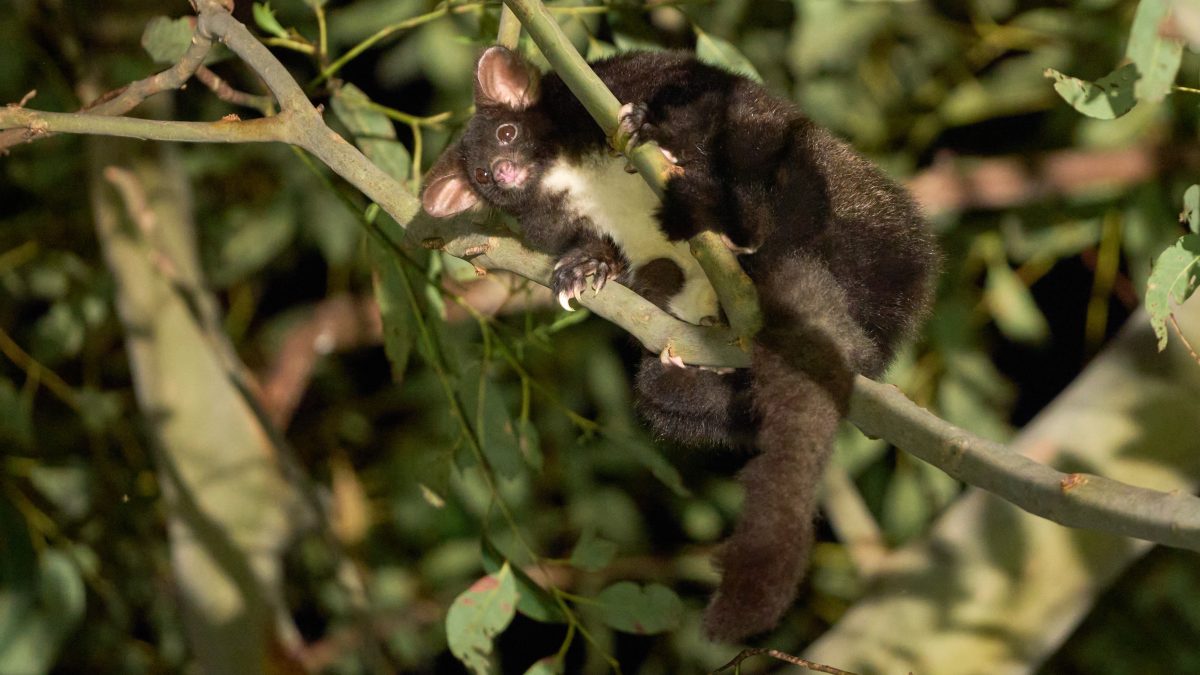
A Southern Greater Glider photographed near the Flat Rock State Forest logging site. Photo: David Gallant.
A stop work order has been issued to the Forestry Corporation of NSW (FCNSW) by the Environment Protection Authority (EPA). The order was issued following the discovery of an endangered glider den on an active logging site in Flat Rock State Forest near Ulladulla.
Prompted by a complaint from the community, the discovery was made by EPA inspectors on Tuesday (14 November).
Despite coastal forestry approval regulations requiring the FCNSW to identify and create a 50-metre exclusion zone around any den trees in the area, a den belonging to the endangered Southern Greater Glider was identified within 30 metres of logging operations.
The order requires the state-owned FCNSW to stop the harvest and transport of timber from the site immediately, while road maintenance and track construction must also cease in the area.
In a statement issued on Wednesday (15 November), the EPA’s Executive Director Jason Gordon emphasised the need to protect the Southern Greater and Yellow-bellied species of glider, both of which were left vulnerable by the Black Summer bushfires.
“These glider species rely heavily on unburnt areas of forest after much of their habitat was impacted by the fires,” Mr Gordon said.
Mr Gordon also alleged that FCNSW had failed to conduct adequate checks for the species prior to commencing operations, even though “pre-harvest surveys indicated the presence of 137 glider sap feed trees”.
This is the second time this year that a stop work order has been issued by the EPA in order to protect the Southern Greater Glider, with 89 specimens and 20 den trees identified by inspectors at an FCNSW site in Tallaganda State Forest in August.
The statement also said the EPA had commenced discussion with FCNSW regarding a strengthened approvals regime and more protections for endangered species.
Nick Hopkins from Friends of the Forest Mogo was part of the team who tipped off the EPA. They spotted the gliders during their own investigation on the site at night. He believes that occupational health and safety regulations preventing access to the site after dark are preventing FCNSW’s surveys from surveying the nocturnal gliders effectively.
Mr Hopkins also stated that discussions between the EPA and FCNSW about stronger approval regimes and more protections would likely “lead to more of the same”.
Given this marks the second stop work order in a short period, Mr Hopkins added that “we’ve reached a stage now where everybody agrees that the native forest logging industry has to come to an end in New South Wales”.
As for what’s next, Hopkins says that citizen scientists will continue to “go in and find other [glider] den trees in active logging operations around the state, and they will blow the whistle”.
“The EPA has now shown that it’s got the courage and determination to step up and issue these stop work orders. So I wouldn’t be surprised if a series of watchdog interventions around the state see the industry grind to a halt.
“However a better outcome would be for the NSW Government to step up like WA and Victoria to end native logging, transition to 100 per cent plantation forestry on marginal agricultural land and develop a just exit package for industry workers who are currently bearing the brunt of uncertainty.”







